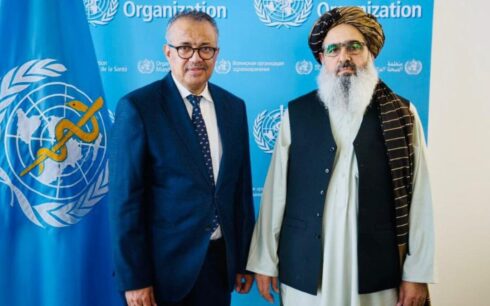The World Health Organization (WHO), in collaboration with the United Nations Office on Drugs and Crime, the European Union, and Japan, highlighted the alarming rate of mental distress in Afghanistan, affecting half of its population.
The issue was discussed during a session in Vienna, addressing the intertwined challenges of mental health and substance use disorders.
Hanan Balkhi, WHO’s regional director, at the meeting titled “Deepening Crisis: Mental Health and Substance Use Disorders Paralyzing Afghan Society,” noted that 50% of Afghans are experiencing mental distress, significantly diminishing their quality of life and increasing susceptibility to drug use.
Balkhi said that starting in 2023, WHO will collaborate with the European Union and the United Nations Office on Drugs and Crime to support individuals with mental health and substance use disorders in Afghanistan. This initiative will operate through 20 centers and deploy 23 outreach teams across the country.
While detailed statistics were not provided, the impact of these mental health conditions on life quality and their correlation with drug abuse were underscored.
Raffaella Iodice, acting head of the EU delegation in Afghanistan, called for global and local investment in mental health and substance use disorder programs, labeling it a collective international responsibility.
Recent Gallup polls have consistently ranked Afghanistan as the world’s unhappiest country, with many Afghans dissatisfied with their life situations. Similarly, the “World Happiness Report” places Afghanistan at the lowest rank for happiness for the fifth year in a row.
Factors such as unemployment, political instability, protracted conflicts, gender discrimination, poverty, adverse environmental conditions, and low literacy rates were identified as key contributors to the challenges Afghans face in achieving fulfilling lives.




